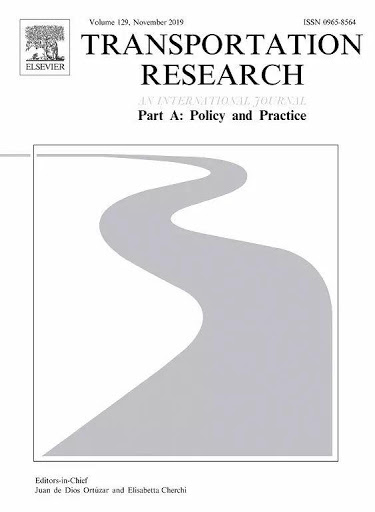PDF | Transportation Research A 40(7), August, 561-571, 2006.
Pnina O. Plaut
Abstract
This paper is an empirical analysis of the relationships between commuting decisions of spouses in dual-income households, where the role of housing and housing tenure is taken into account. The study is based on a large survey of US commuters and actual commuting and housing choices. Household commuting decisions are analyzed together with housing choices using the data from the 2001 American Housing Survey. A sample of dual-career spouses who commute to work by car only is used to explore the inter-relationship between male and female commuting decisions in such households and the effect of housing choices on their commuting. The inter-relationships between spousal commuting decisions are examined separately for the two forms of housing tenure: ownership and renting. In general, men commute further than women and owners commute further than renters.
It is shown that for both renters and homeowners, journeys to work by men and women in such dual-earner households appear to be “complements” and not “substitutes”. This means that commute trips are jointly chosen to be longer (or shorter) for both spouses, as part of household selection of preferred housing and neighborhood characteristics. The residuals of equations explaining commute times and commute distances for men are strongly positively correlated with those for women. Many of the explanatory factors affect the men and women in similar ways. In particular, housing value is positively correlated with commute times and distances for both genders. The commute distance for women owners appears more sensitive to housing value than that of men, meaning women adjust their trips to work even more so than men do, as part of obtaining better housing.
For both homeowners and renters, longer commute distances were correlated with higher salaries for both spouses. Somewhat surprisingly, it was found that commuting distances for women are similarly or even more sensitive to income increments than are those of men. Household size appears to affect women who own housing in ways opposite from those who rent. Other housing and neighborhood factors also affect the joint commuting decisions of these men and women.
